Navigation
Whistleblower Stories
Resources and real experiences from those who took a stand
Whistleblowers play a crucial role in maintaining integrity and accountability in our society. Their stories of courage and determination inspire others and highlight the importance of speaking truth to power.
On this page, you'll find resources and real-life cases that provide insight into the whistleblower experience, the challenges they face, and the impact they have made.
Books
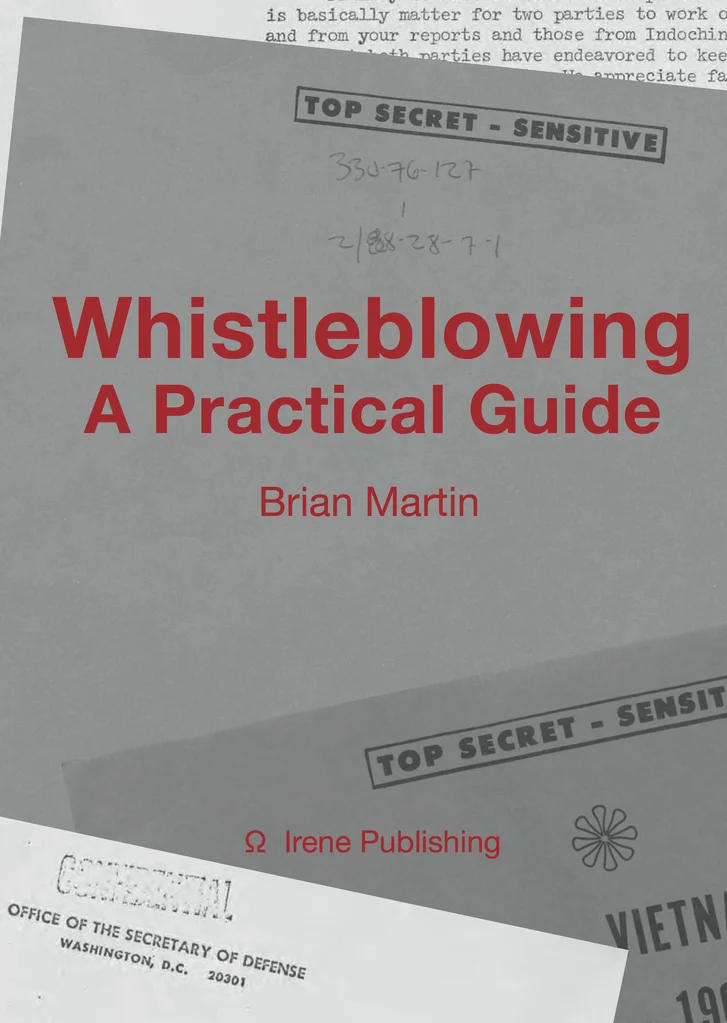
Whistleblowing: a practical guide
This manual is for people who speak out in the public interest. It describes how to assess options, prepare for action, use official channels, build support and survive the experience.
Author: Brian Martin, office-bearer in Whistleblowers Australia and emeritus professor at the University of Wollongong, Australia
Free download at: http://www.bmartin.cc/pubs/13wb.html
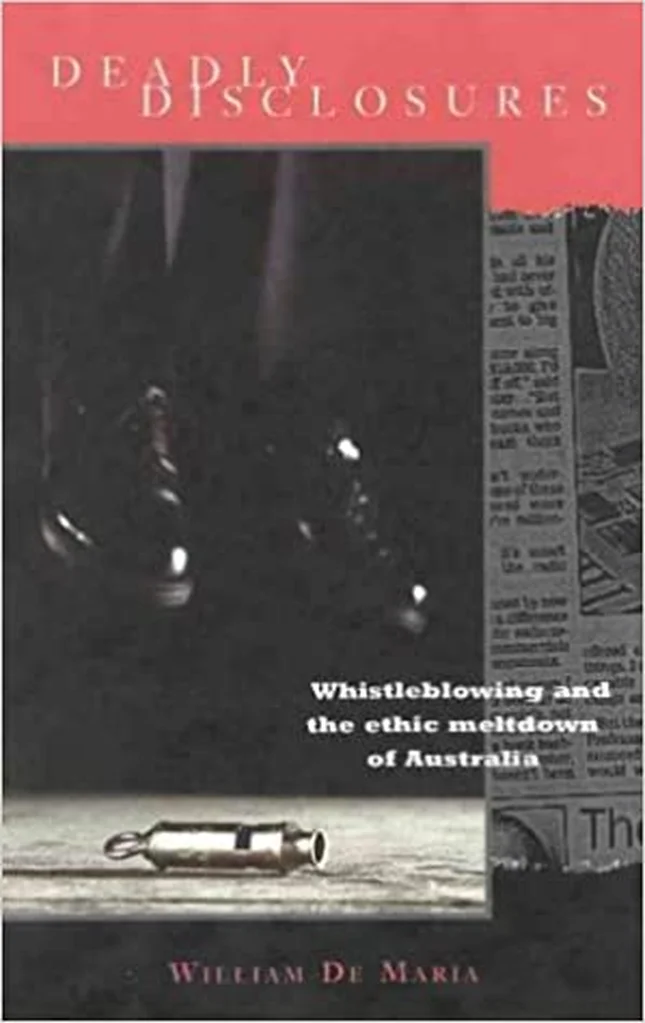
Deadly Disclosures
This is a provocative analysis of public ethics in Australia that paints an alarming picture in which managers and employees alike turn a blind eye to wrongdoing and victimize the minority that dares to rock the boat.
Author: William de Maria, whistleblower and academic at the Centre for Public Administration at the University of Queensland, Australia.
Published: 1999 by Wakefield Press, South Australia. ISBN 1 86254 457 3.
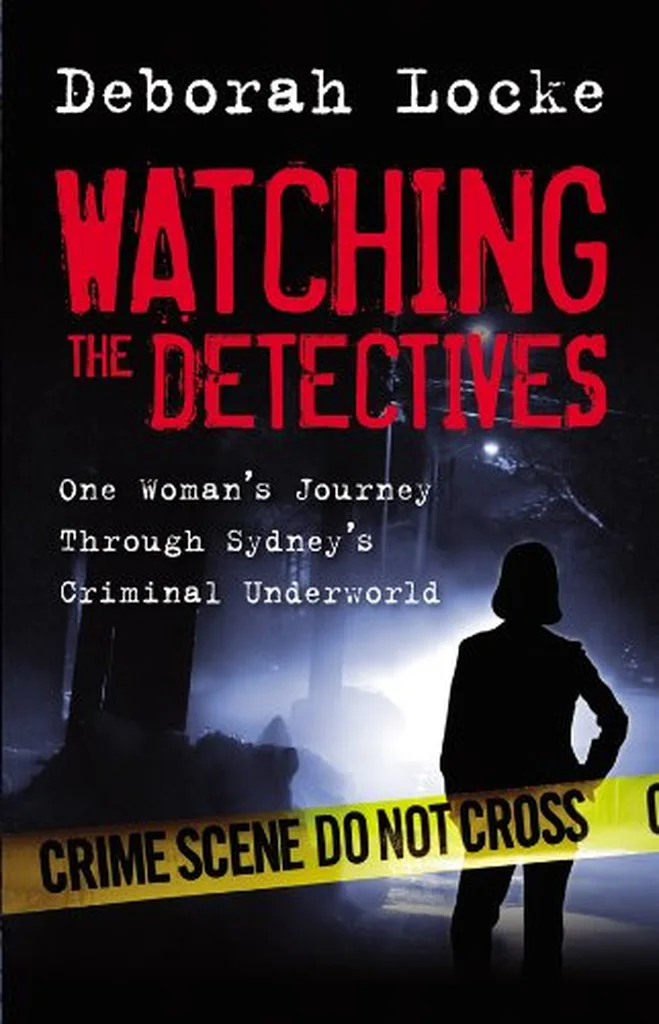
Watching the detectives: one woman's journey through Sydney's criminal underworld
This is the story of a gutsy young woman, police officer and whistleblower, who got to know the ugly face of Aussie mateship and the meaning of loyalty to family, friends and to oneself.
Author: Deborah Locke, former NSW police officer, who was instrumental in bringing about the NSW Wood Royal Commission of Inquiry into police corruption in the early 1990's.
Published: 2003 by Griffin Press, Adelaide, Australia. ISBN 0 7333 1242 X
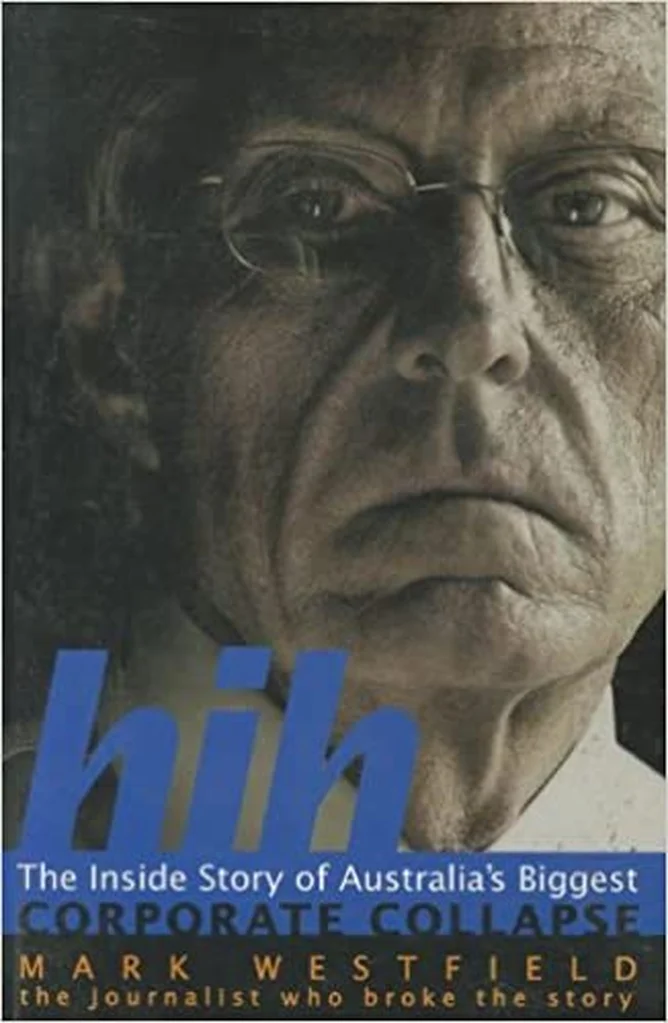
HIH: The Inside Story of Australia's Biggest Corporate Collapse
The inside story of whistleblower Jeff Simpson. His attempts to bring the facts behind the now-notorious financial debacle of HIH to the attention of APRA and at least one major auditing body, right through to the findings later made by Royal Commissioner Owen, make this required reading for corporate whistleblowers everywhere.
Author: Mark Westfield
Published: John Wiley & Sons Australia (2003). ISBN: 9781740310642
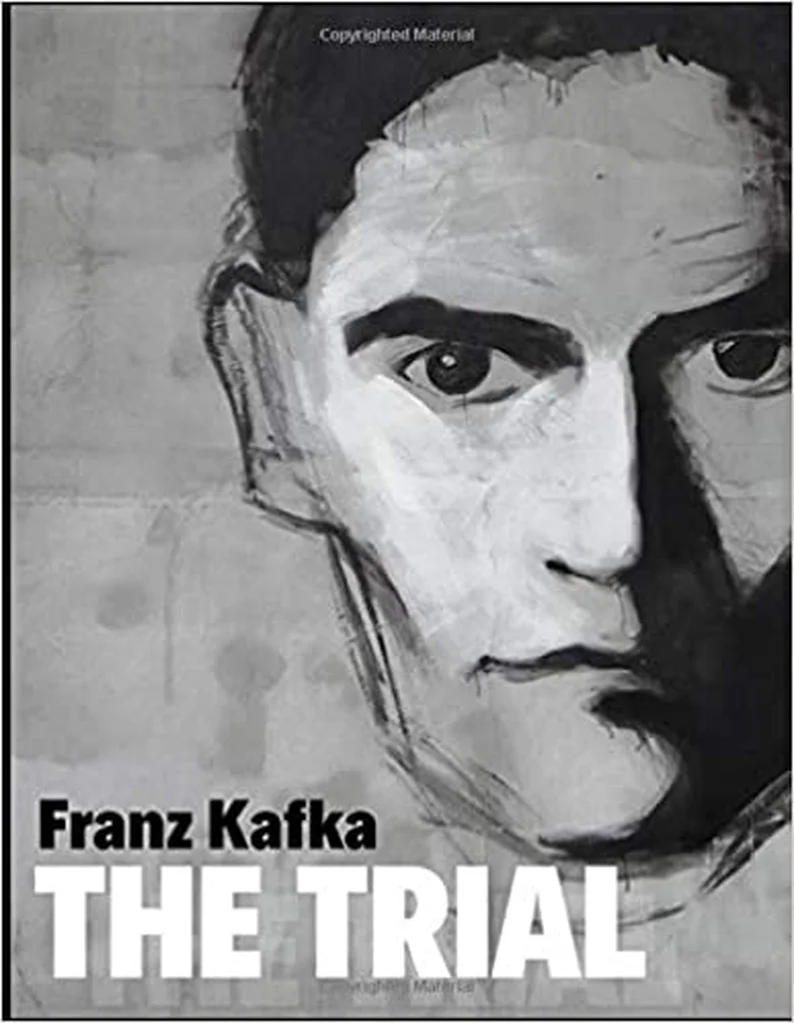
The Trial
This is a famous allegory of a human predicament that hovers on the rim of a nightmare at the hands of a bureaucracy gone mad, which (with the author's other publication The Castle) led to the coining of the word 'Kafka-esque'.The Trial captures the often absurd, even terrifying modern-day equivalent at the hands of a human resources department. This is recommended reading for the whistleblower and others struggling to understand why people prefer to act badly when they have the opportunity.
Author: Franz Kafka (1883-1924), a Czech citizen, lawyer and writer.
Films

Silkwood (1983)
A dramatization of the story of Karen Silkwood, who died in a suspicious car accident while investigating alleged wrongdoing at the Kerr-McGee plutonium plant where she worked.
Director: Mike Nichols
Starring: Meryl Streep, Kurt Russell, Cher
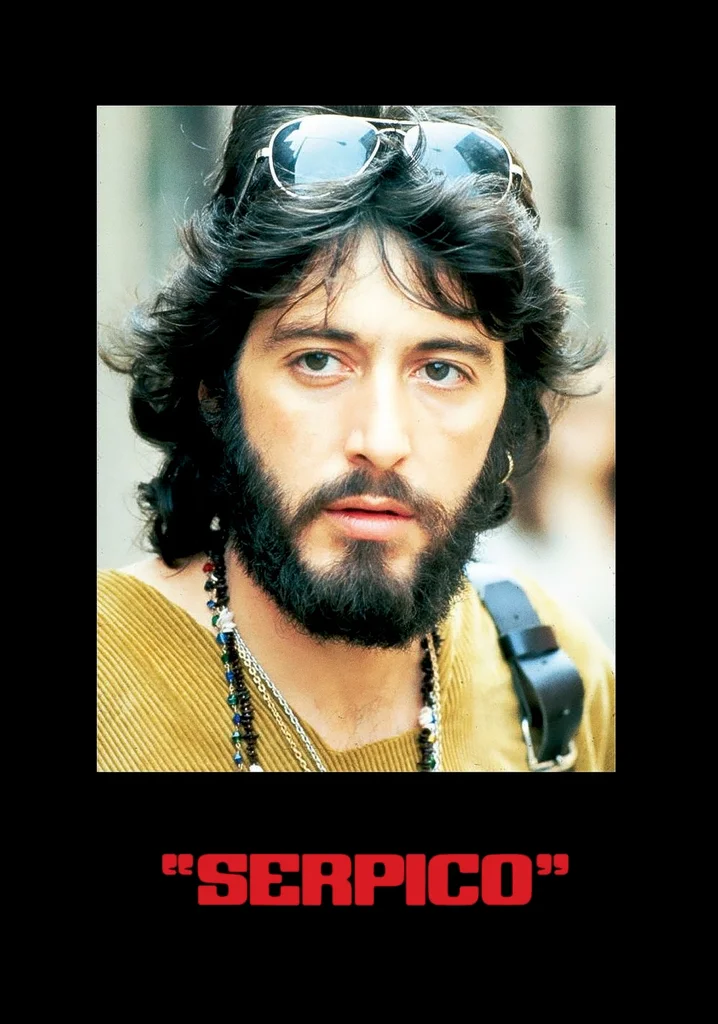
Serpico (1973)
The true story of Frank Serpico, a New York City police officer who went undercover to expose the corruption of his fellow officers.
Director: Sidney Lumet
Starring: Al Pacino, John Randolph, Jack Kehoe
Film Lists About Whistleblowers
- 11 movies about whistleblowers that you cannot missby Transparency International (films from 1973 to 2019)
- Top 10 whistleblower moviesWatchmojo (films from 1954 to 2009)
- Whistleblower movies - American heroes and heroines!by HollywoodTales (17 films from 1973 to 2019)
- The 21 best movies about whistleblowersHollywood Reporter (films from 1954 to 2013)
- "Get reel: whistleblowers are heroes in these 19 movies", by Bob Tremblay, in The Whistle, October 2019, pp. 17-19
Whistleblower Cases of National Significance
Five case studies were formally adopted by WBA as "whistleblower cases of national significance" as the basis for the argument for the establishment of a stand-alone whistleblower-protection authority or public-interest disclosure agency (PIDA). Each of the cases listed was the subject of formal investigations by the authorities.
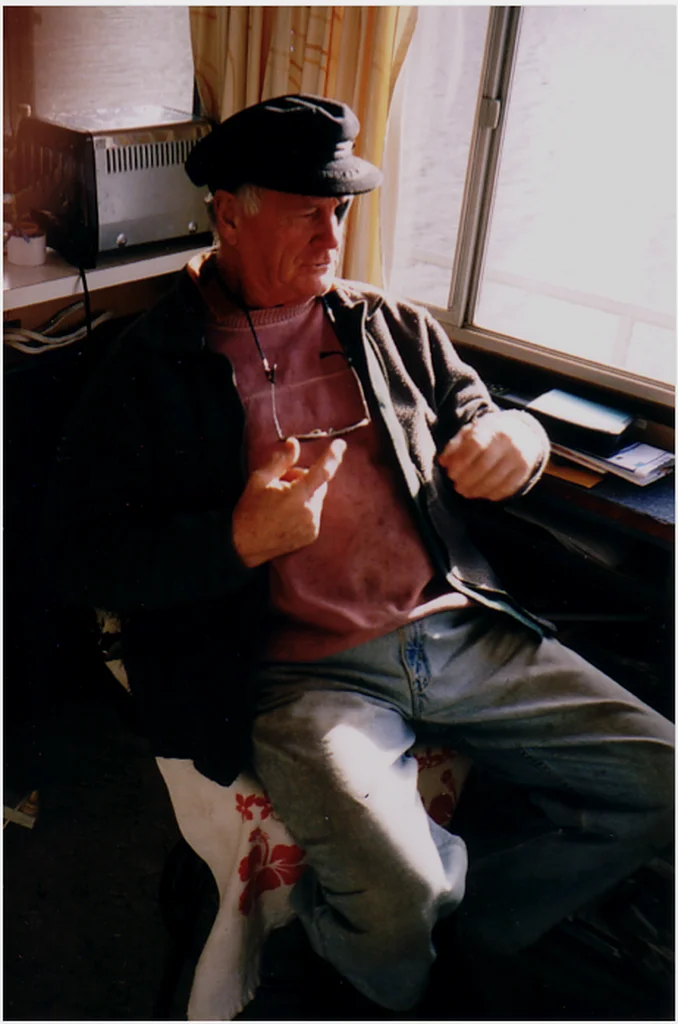
Bill Toomer
Disclosures
Mr Toomer disclosed information tending to show that particular shipping enterprises were being protected from the application of quarantine regulations by public officers in a Federal Government Department. Mr Toomer's disclosures also alleged victimization by public service authorities, including punitive transfer and psychological and professional vilification by those authorities.
Investigation
Since 1973, Mr Toomer's disclosures have been investigated by several parliamentary, governmental and public service authorities. Only two public service investigations, in 1973 and 1979, found in Mr Toomer's favour; by contrast, all investigations independent of the federal public service have made recommendations for exoneration, compensation, and/or other actions helpful to Mr Toomer. As early as 1976, the Coombs Royal Commission recommended that an inquiry into the Toomer allegations should be independent of the public service. Even an order for such an investigation by the Prime Minister of Australia was never allowed to be put into effect.
Authentication
The 1990 Administrative Appeals Tribunal decision, dismissing attacks on Mr Toomer's personality and professional reputation, was preferred by the 1995 Senate Select Committee on Unresolved Whistleblower Cases. The Committee Chair further recommended that consideration be given to compensation to Mr Toomer.
Significance
Resolution of whistleblower cases cannot be achieved without remedy. The existence of a power to remedy, and a willingness by an authority to remedy, the damage done to whistleblowers and their families is the necessary prerequisite to comprehensive whistleblower legislation. Culturally, public service authorities have proven themselves steadfast in denying remedy to the reprisals other public service authorities have imposed on their officers. They will protect senior public administrators to the point of thwarting the legislation of the parliaments they serve. A whistleblower protection authority must be independent of the public service, reporting directly to parliament.
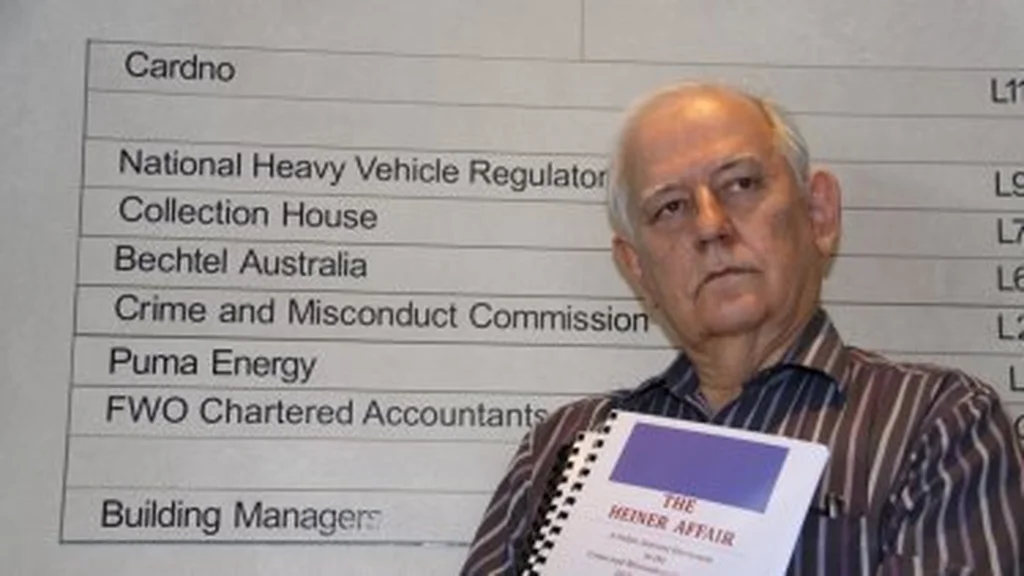
Kevin Lindeberg
Disclosures
Mr Lindeberg disclosed information tending to show that a Queensland State Government Department acted in abuse of its power by refusing to provide to one of its officers access to public records that the Department was required by regulation to so provide. Mr Lindeberg's disclosures further alleged that the Queensland Cabinet had destroyed the same documents in the knowledge that the documents were required by the officer for litigation against the Queensland Government, and did so to prevent their use in court proceedings.
Investigation
The disclosures were made to Criminal Justice Commission and the Queensland Police Force. Over a six year period, despite claims by the CJC that the disclosures had been investigated "to the nth degree", neither authority detected nor dealt with the prima facie official misconduct and breaches of the Criminal Code identified by a Government investigation conducted in 1996. The 1999 Forde Inquiry into the multiple incidents of child abuse that were described in the destroyed documents refused to investigate the destruction of the documents that contained much of the evidence of the child abuse.
Authentication
The Report to the Queensland Cabinet by Messrs Morris QC and Howard, dated 8 Oct 96, recommended that the public interest would be served by a public inquiry into the Lindeberg allegations. The Report questioned the adequacy, competence and independence of the CJC's investigation.
Significance
Whistleblowers cannot survive in any administration where investigations into their allegations are denied by destruction or cover-up of the evidence, by inadequacy or incompetence in the investigation, and/or by a lack of independence by the investigating authority.
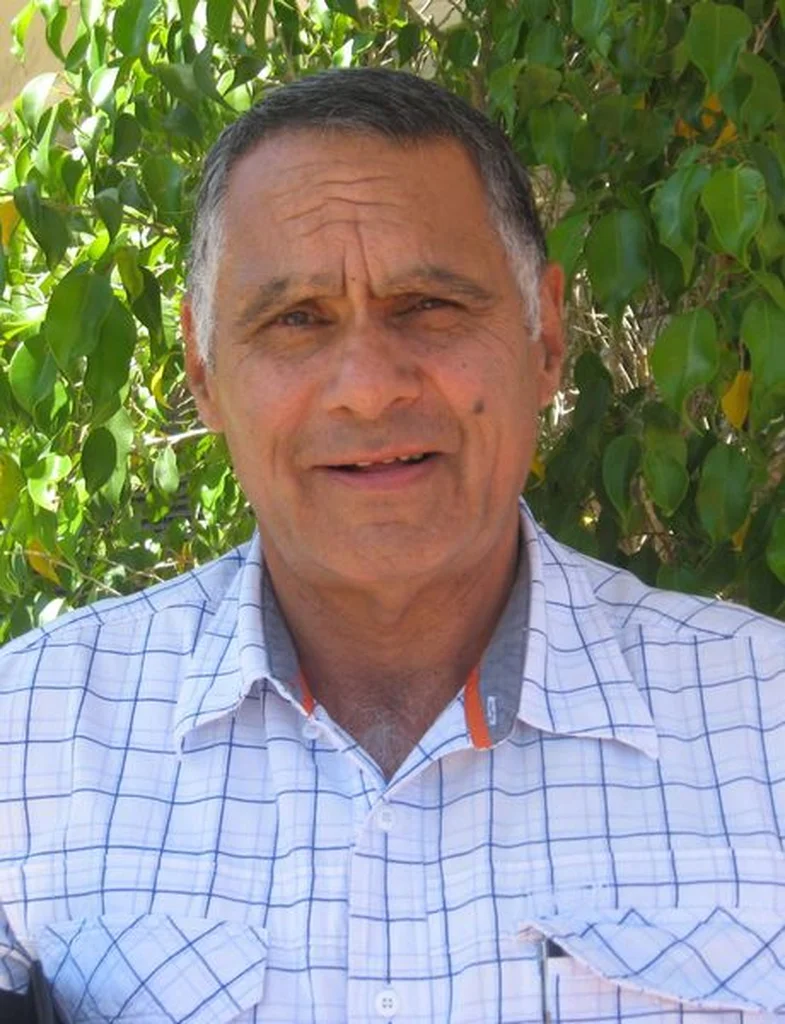
Col Dillon
Col blew the whistle on corrupt Queensland police in the Fitzgerald Inquiry.
Jim Leggate
Disclosures
Mr Leggate disclosed information tending to show that a Queensland State Government Department, charged with the regulation of the mining industry, had adopted a policy of nonenforcement of those regulations. The result was a potential taxpayer bill, in excess of $1 billion, to avoid environmental harm that mining companies were being allowed to impose on Queenslanders. Mr Leggate's disclosures also alleged that a punitive transfer had been imposed on him because of his actions to meet his duties under his public office in accordance with those same regulations.
Investigation
The disclosures were made to the Criminal Justice Commission, the Queensland Public Service Commission and the Ombudsman. In spite of private sector and public sector denials of the existence of a nonenforcement policy, the CJC found that such a policy did exist. The CJC, however, did not regard the policy as a breach of trust, and would not investigate what the CJC claimed was a matter outside their jurisdiction.
Authentication
The CJC admission as to the existence of the nonenforcement policy was given to the Connolly-Ryan Inquiry into the CJC. Counsel assisting that inquiry stated that there was prima facie case and a factually sufficient basis to give the CJC jurisdiction to investigate.
Significance
Whistleblower protection legislation and procedures must be effective in circumstances where the public sector entity to which the whistleblower belongs is a "rogue" authority, actively coercing its own officers to complicity in the breach of the law. The case of the "rogue" department is at a level of official misconduct that can prove daunting even to authorities charged with the arrest and expulsion of official misconduct, let alone to a single officer whistleblower. Whistleblowers need protection of their profession, career and employment while the authorities take the time to catch their breath at the enormity of the misconduct disclosed.
Mick Skrijel
Disclosures
Mr Skrijel made disclosures about the illegal importation of heroin in South Australia using fishing vessels. Mr Skrijel, his family and business were subsequently subject to threat and detriment, and Mr Skrijel was wrongfully imprisoned on drug charges. The disclosures made to the court in establishing Mr Skrijel's wrongful imprisonment led to allegations that State and Federal law enforcement agencies were corrupt, and were themselves involved in drug trafficking and the protection of drug trafficking.
Investigation
Mr Skrijel made his initial disclosures to the South Australian Police and the Costigan Royal Commission. The Victorian Police and the National Crime Authority were involved in the prosecution of Mr Skrijel and the fabrication of evidence that led to his wrongful imprisonment. Those law enforcement agencies charged with responsibility to investigate matters disclosed by Mr Skrijel turned their resources, powers and position of trust to the task of destroying every aspect of Mr Skrijel's life.
Authentication
The Federal Justice Minister in 1993 appointed Mr Quick QC to investigate the events affecting Mr Skriiel. The Report to the Federal Attorney General by Mr Quick QC, dated 4th April 1995, recommended that a Royal Commission be held into those events.
Significance
The protection of whistleblowers can not be entrusted to crime and law enforcement agencies. These agencies are too often captured by those same criminal forces that the agencies are charged to bring to justice. Whistleblowers need their own single purpose authority to protect the whistleblowers, their rights and their interests from wrongful conduct by other authorities.
Whistleblower Cases
Australian Disability Enterprises (ADE) whistleblower
In the 1990s, the whistleblower took her concerns to her employer, government funded ADE, about intellectually disabled workers who were being abused and underpaid. She thought they would want to fix it. They didn't. She persisted. They gave her a very hard time. She was pushed out. She asked lawyers Maurice Blackburn to take it on. They did - and won. The lawyers then filed a class action for the ten thousand disabled workers who worked for ADE across the country. They won in excess of $100 million just before Christmas 2016. The federal government was still squabbling about how to calculate a disabled worker's wage.
ABC News articleMichaela Banerji, refugee policy whistleblower
High Court decision in Comcare v Banerji c12/2018 HCA, Hearing 10 am Wednesday 20 March and Thursday 21 March 2019 | Court No1
Monica Bennett-Ryan, Janice Weightman and Owen Laikum, Defence whistleblowers
These whistleblowers alleged security holes in Defence.
ABC Lateline, 16 May 2011Karen Burgess, disability whistleblower
Karen blew the whistle on issues regarding care for children with autism.
"Karen Burgess: Autism Spectrum (Aspect) whistleblower", The Whistle, January 2017, pp. 7-9
Karen Burgess, "Whistleblowing while mothering," The Whistle, October 2020, pp. 2-3
Michael Cole, serial whistleblower
Michael blew the whistle at Westmead Hospital and in the not-for-profit sector.
Michael Cole, "A disturbing story from the not-for-profit sector," The Whistle, April 2019, p. 2
Laura Woods, "The price of speaking out: Australia's hostile environment for whistleblowers," Vice News, 27 January 2022
Maggie Dawkins, paedophilia whistleblower
Maggie embarked on a 26-year whistleblower journey exposing paedophilia.
Maggie Dawkins, "A 26-year whistleblower journey", The Whistle, January 2019, pp. 3-6
Lotte Fog, hospital whistleblower
Lotte blew the whistle on the underdosing of cancer patients at the radiotherapy department at the Royal Adelaide Hospital in South Australia. Her story first appeared under the pseudonym of Geraldine Macdonald in the April 2009 issue of The Whistle. Lotte later revealed on Netherlands Radio her identity and how her working life became intolerable in 2009.
Richard Gates, community activist
Richard advocated for public issues in a small community.
Richard Gates, "Public advocacy in a small community," The Whistle, January 2018, pp. 10-11
Sally Harding, sports whistleblower
Sally blew the whistle on issues in sports administration.
Sally Harding, "'Your mother must despair that you can't turn a blind eye'," The Whistle, January 2019, pp. 7-10
Toni Hoffman, hospital whistleblower
Toni, a nurse, for two years tried to raise her concerns with the Bundaberg Base Hospital in Queensland about the lethal activities of a surgeon called Jayant Patel, a man later sentenced in 2010 to seven years' gaol for manslaughter and grievous bodily harm.
Brian Hood, NPA and Reserve Bank of Australia whistleblower
Brian Hood exposed corruption at Note Printing Australia, a subsidiary of the Reserve Bank of Australia.
The Age articleDavid Isaacs, Nauru Detention Centre whistleblower
David spoke out about conditions at the Nauru Detention Centre.
The Whistle, January 2017, pp. 10-12
Alwyn Johnson, banking whistleblower
Alwyn exposed issues in the banking sector.
Kim Sawyer, "Alwyn Johnson", The Whistle, October 2019, pp. 4-7
Kim Kirsner, academic whistleblower
Kim spoke out about issues in academia.
Kim Kirsner, "Never, but never, be a bystander" The Whistle, January 2018, pp. 13-14
John Millard, ABC whistleblower
John blew the whistle on ABC TV, to "Keep Aunty Honest".
Refer to the June 2005 issue of The Whistle
Jeff Morris, Commonwealth Bank whistleblower
He was instrumental in bringing about the Royal Commission in the Banking, Superannuation and Financial Services Industry 2018.
"After the banking royal commission" (notes on a talk by Jeff), The Whistle, January 2020, pp. 15-16
Don Parkes, academic whistleblower
Don exposed issues in the university sector.
Don Parkes, "Doctored! A university story" (summary), The Whistle, January 2018, p. 16
Complete bookLesley Pinson, State Rail Authority (SRA) whistleblower
In NSW in the early 1990s, Lesley Pinson, auditor, took her claims of serious, systemic and top down fraud in the SRA to senior management. They gave her a hard time, chose not to investigate, covered it up and pushed her out. The Independent Commission Against Corruption (ICAC) didn't want to know, so she went to the media, Brian Langton MP and auditor–general Tony Harris, who decided to investigate. The auditor-general's report was the catalyst for the break-up of the SRA into four separate entities. Barry O'Keefe OC, the ICAC commissioner, famously told ABC radio he'd always known the SRA was corrupt. Pity he'd decided not to investigate on the SRA's say so!
The July 2016 issue of The Whistle is a tribute to Lesley.
Dave Reid, Australian Nuclear Science and Technology Organisation (ANSTO) whistleblower
Dave exposed safety issues at ANSTO.
Lynn Simpson, live exports whistleblower
Dr. Simpson revealed the poor conditions on live export ships and was subsequently removed from her position.
"Lynn Simpson, live exports whistleblower," The Whistle, January 2017, pp. 9-10
Lynn Simpson, "How the tides change," The Whistle, January 2018, pp. 4-5
Lynn Simpson, "If at first you don't succeed ...", The Whistle, January 2020, pp. 7-8
Toondah whistleblower
This whistleblower exposed threats to the RAMSAR listed wetland Toondah Harbour, Queensland.
ABC News articleLarry Vincent, serial whistleblower
Larry spoke out multiple times about various issues.
Larry Vincent, "Prosper doing what you ought", The Whistle, January 2018, pp. 14-16
Witness K and Bernard Collaery, Timor L'Este whistleblowers
Witness K and his lawyer Bernard Collaery exposed Australia's spying operation against Timor-Leste during oil and gas negotiations.
See Alliance Against Political Prosecutions for more information.
“Every whistleblower's journey is unique, but they all share the courage to speak truth to power.”